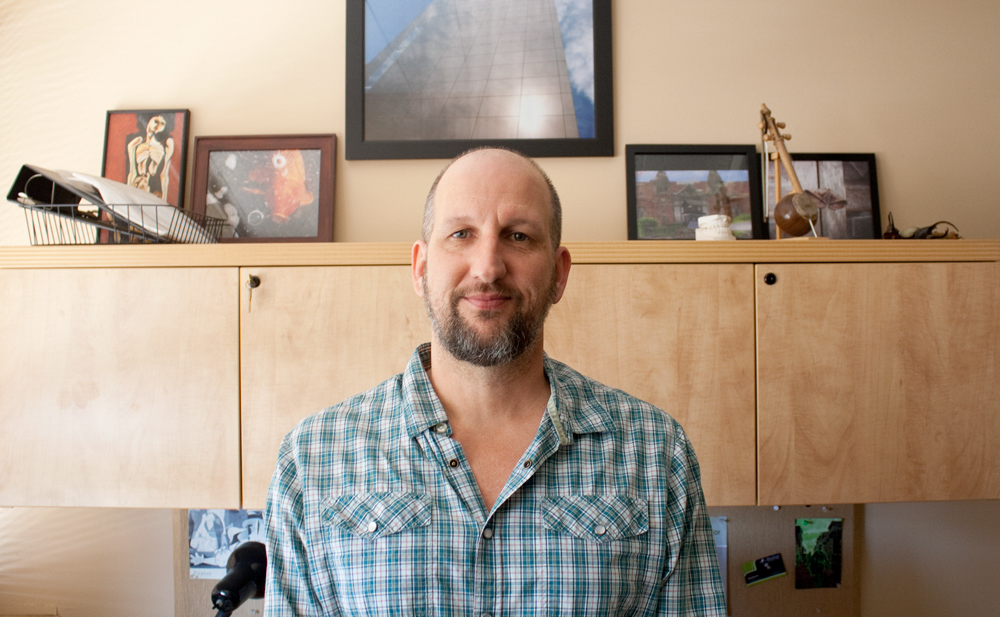Study suggests people across world can distinguish between real, fake laughter

Greg Bryant, an associate professor in the department of communication, has been studying the nature of laughter for almost 10 years. His newest research built off a previous study he led in 2014 that indicated people could determine whether or not a laugh is genuine. (Daily Bruin file photo)
By Maddie Ostergaard
July 30, 2018 12:16 a.m.
UCLA researchers found that people from different parts of the world are able to differentiate between real laughter and fake laughter.
The study, which was published Wednesday, observed 884 participants from 21 countries across six continents. To test the participants, the researchers recorded different kinds of laughs.
They extracted genuine laughter from recorded conversations between pairs of English-speaking female friends and extracted fake laughter from women who were asked to laugh on command. The recordings were played in random order for the participants and were edited prior to the study in order to standardize the length and volume of the clips.
A significant finding was that participants from larger, more industrialized societies could not distinguish between real and fake laughter as accurately as participants from smaller, less industrialized societies.
The researchers said they believe that people from the less industrialized countries depend more on deep and complex social relationships for survival, and are thus more in tune with the emotions of others and potentially more likely to use these signals to predict the behavior of other people.
Overall, listeners from all over the globe and from different cultures were mostly able to discern whether a laugh was real or fake. However, some groups were able to differentiate better than others. Japanese listeners, for example, were able to correctly identify the type of laughter in a recording 69 percent of the time, while Samoan listeners were only able to identify the correct answer 56 percent of the time.
Greg Bryant, an associate professor in communication, and Daniel Fessler, a professor of evolutionary anthropology, led the study and co-wrote the paper.
Bryant has been studying the nature of laughter for almost 10 years. Bryant’s newest research built off a previous study he led in 2014 that indicated that people could determine whether or not a laugh is genuine.

